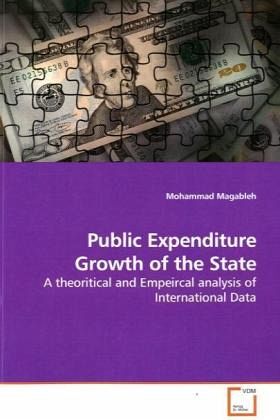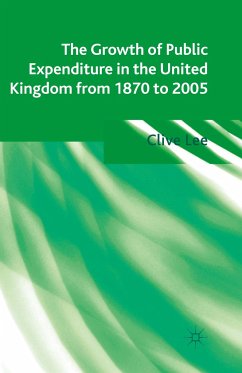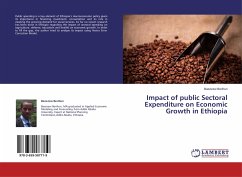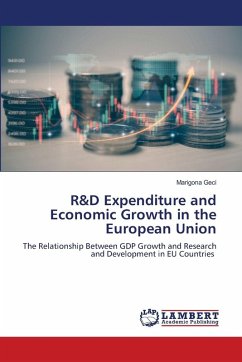
Public Expenditure Growth of the State
A theoritical and Empeircal analysis of International Data
Versandkostenfrei!
Versandfertig in 6-10 Tagen
52,99 €
inkl. MwSt.

PAYBACK Punkte
26 °P sammeln!
The debate over the size of state activity remains controversial. In the late 19th century, the German economist Adolph Wagner proposed a direct economic explanation of the expansion of the size of the public economy.Wagner predicted that economic development would be accompanied by a relative growth in the public sector. Testing of the Wagner Hypothesis continues to produce mixed results.It is argued that the way that the Wagner Hypothesis has been interpreted in the existing literature has been incomplete both on theoretical and empirical grounds. This work provides a comprehensive framework...
The debate over the size of state activity remains controversial. In the late 19th century, the German economist Adolph Wagner proposed a direct economic explanation of the expansion of the size of the public economy.Wagner predicted that economic development would be accompanied by a relative growth in the public sector. Testing of the Wagner Hypothesis continues to produce mixed results.It is argued that the way that the Wagner Hypothesis has been interpreted in the existing literature has been incomplete both on theoretical and empirical grounds. This work provides a comprehensive framework of the growth of the state hypotheses. The framework suggests that with the development process represented mainly by per capita income, the fiscal state, represented by the share of government expenditure in national income, will increase at a higher rate than that of the increase in per capita income until it reaches a certain limit.Employing logistic and the Gompertz equations to 88 countries from 1990 to 1997.The current results tend to confirm mainly a general convergence of state expenditure share in GDP relative to economic development.












